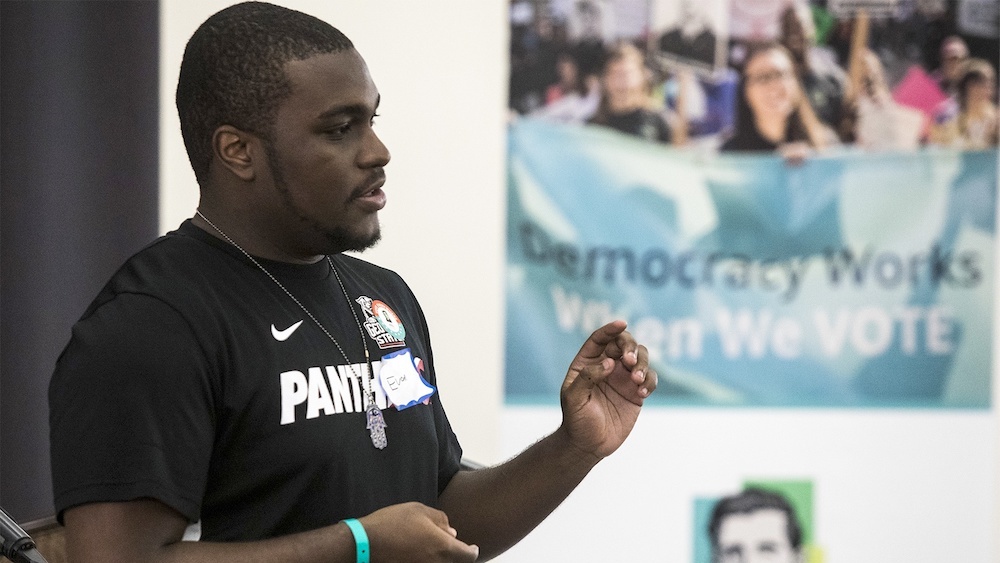If you’re interested in sharing your opinion on any cultural, political or personal topic, create an account here and check out our how-to post to learn more.
____
In 2018, college students’ participation in the Midterm Elections doubled from 2014, as reported in Democracy Counts 2018, a study conducted by Tufts University’s Institute for Democracy & Higher Education. This amazing news reinforces what I already know to be true: the millennial and Gen Z generations are passionate about participating in our political system. Many organizations and movements push students to register, vote and participate in elections at all levels, but to save our democracy, young people, particularly young Black Americans, need to be even more involved. One little known — and vital — way for us to participate in and protect our democracy is to serve as poll workers.
Poll workers are very important. Their role helps ensure free and open elections. A poll worker’s responsibilities include signing in registered voters, explaining voting procedure, helping voters use voting equipment, providing ballots and monitoring the election process. In states with same-day registration, they also register voters. A poll worker is also a paid position, which is really helpful for young adults and college students. Poll workers in some states make $250 for the day.
Despite these benefits, the U.S. Election Assistance Commission reports that almost 77% of poll workers in the United States are over the age of 61. The commission also states that “nearly 65% of jurisdictions reported that it was ‘very difficult’ or ‘somewhat difficult’ to obtain a sufficient number of poll workers.”
This means that young people are not only underrepresented in the population of poll workers, but also that they have a chance to fill the shortage of poll workers. Increasing the amount of qualified poll workers is essential to breaking down the barriers stopping many working class and young people of color from voting. Long lines at polling locations are the biggest barrier for many voters. The long wait times can be attributed to the following two factors: lack of polling locations and lack of poll workers to fill them.
Young people are also key to filling the technology education gap, as multiple states are modernizing their election systems. Politico reports that most states use technology to cast and count votes or to scan paper ballots. Recently, the state of Georgia, where I attend college at Georgia State University, has invested in new voting machines set to be used in the 2020 presidential primary election. Young people, who grew up immersed in technology, are essential to helping the community operate these machines and to provide technical support when there are problems and outages.
Adding young workers to polling stations also means more eyes to identify instances of voter suppression and election interference, especially for young people, a disproportionately affected group.
Older generations have set an example of what it means to go above and beyond to ensure our democracy is fair and accessible. It is time for our generation to take up that mantle and push it forward. We cannot just turn out the vote; we need to put in the work. The 2020 presidential primary and general elections will be some of the most consequential elections in American history, and it is up to millennials and Gen Zers, the largest voting block, to make our voices heard.
I will be a poll worker. Will you? Our democracy cannot wait until we are 61 for us to work at our polls.
For more information on how to become a poll worker, visit the U.S. Election Assistance Commission at eac.gov/voters/become-a-poll-worker/
____
Evan Malbrough is a student at Georgia State University and an Andrew Goodman Foundation Vote Everywhere Student Ambassador.
